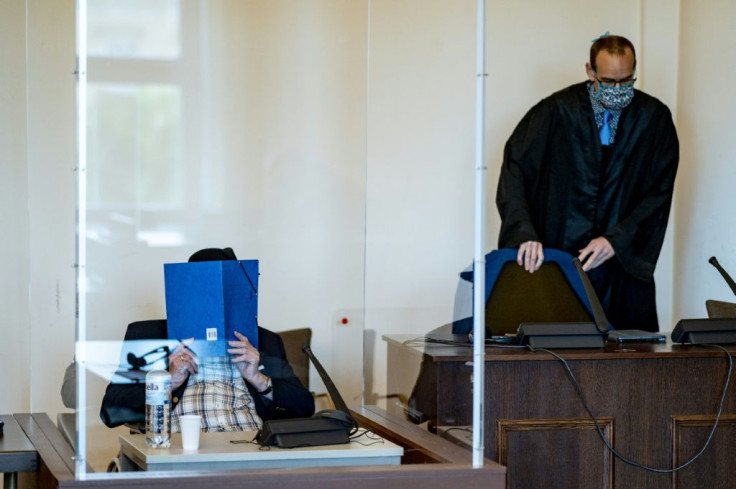Ex-SS Guard Apologises To Holocaust Victims Ahead Of Verdict
A 93-year-old former Nazi concentration camp guard apologised to Holocaust victims at a Hamburg court Monday, ahead of the verdict in a high-profile trial over his complicity in World War II atrocities.
"Today I would like to apologise to those who went through the hell of this madness, as well as to their relatives. Something like this must never happen again," said Bruno Dey from the dock.
In what could be one of the last such cases of surviving Nazi guards, Dey stands accused of complicity in the murder of 5,230 people when he worked as an SS tower guard at the Stutthof camp near what was then Danzig, now Gdansk in Poland.
The court is expected to issue its verdict on Thursday.
Prosecutors have sought a prison sentence of three years.
But in his summary on Monday, Dey's defence lawyer Stefan Waterkamp asked the court for an acquittal or a suspended sentence, saying his client "would not survive" jail.
Dey himself has denied any guilt for what happened at the camp, and said that the trial had "cost a lot of strength".
"I would like to stress again that I would never have voluntarily signed up to the SS or any other unit -- especially not in a concentration camp," he said in his final statements before the court delivers its verdict.
"If I had seen an opportunity to remove myself from service, I would have done so."
He added that he only became aware of the "extent of the atrocities" upon hearing witness testimonies and reports.
Yet one Stutthof survivor dismissed Dey's comments on Monday.
"I'm speechless. I don't want his apology, I don't need it," Marek Dunin-Wasowicz, a 93-year-old camp survivor told AFP via telephone from his home in Warsaw.

Dey is standing trial at a juvenile court because he was aged between 17 and 18 at the time.
Waterkamp, his lawyer, pointed out that such a young man could hardly have been expected to break ranks, and that the teenaged Dey "saw no escape".
He added that as a tower guard, Dey would not have known the extent of the "sadism" and "inhumane conditions" of the camp.
Waterkamp said that the Nazi crimes were "incomprehensible" and that the witness testimonies had "severely shaken" his client.
The Nazis set up the Stutthof camp in 1939, initially using it to detain Polish political prisoners.
But it ended up holding 110,000 detainees, including many Jews. Some 65,000 people perished in the camp.
Dey, who now lives in Hamburg, became a baker after the war.
Married with two daughters, he supplemented his income by working as a truck driver, before later taking on a job in building maintenance.
He came into prosecutors' sights after a landmark 2011 ruling against former Sobibor camp guard John Demjanjuk on the basis that he was part of the Nazi killing machine.
Since then, Germany has raced to put on trial surviving SS personnel on those grounds rather than for murders or atrocities directly linked to the individual accused.
Another former guard at the Stutthof camp, now 95, was charged last week with complicity in the murder of several hundred people.
The district court in Wuppertal must determine with the help of experts if the accused in that case is fit for trial.
© Copyright AFP 2024. All rights reserved.




















